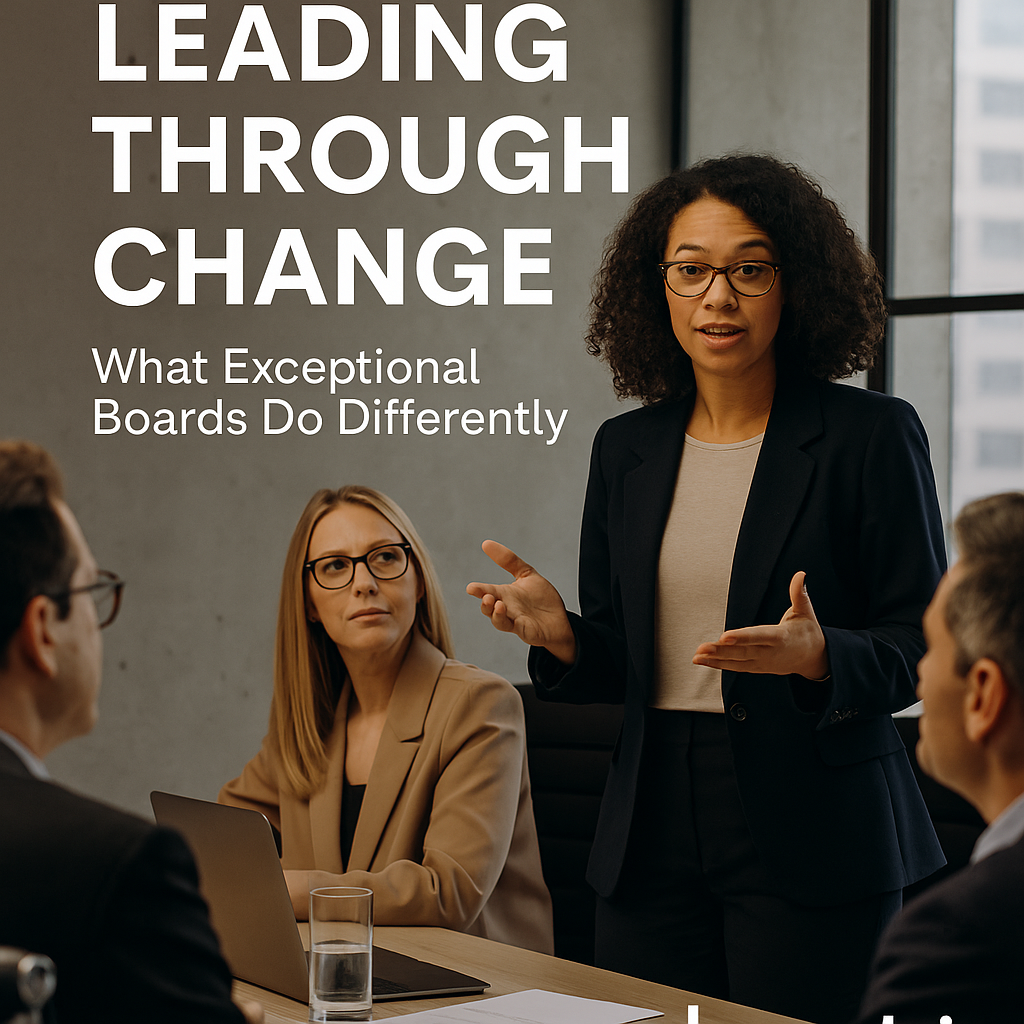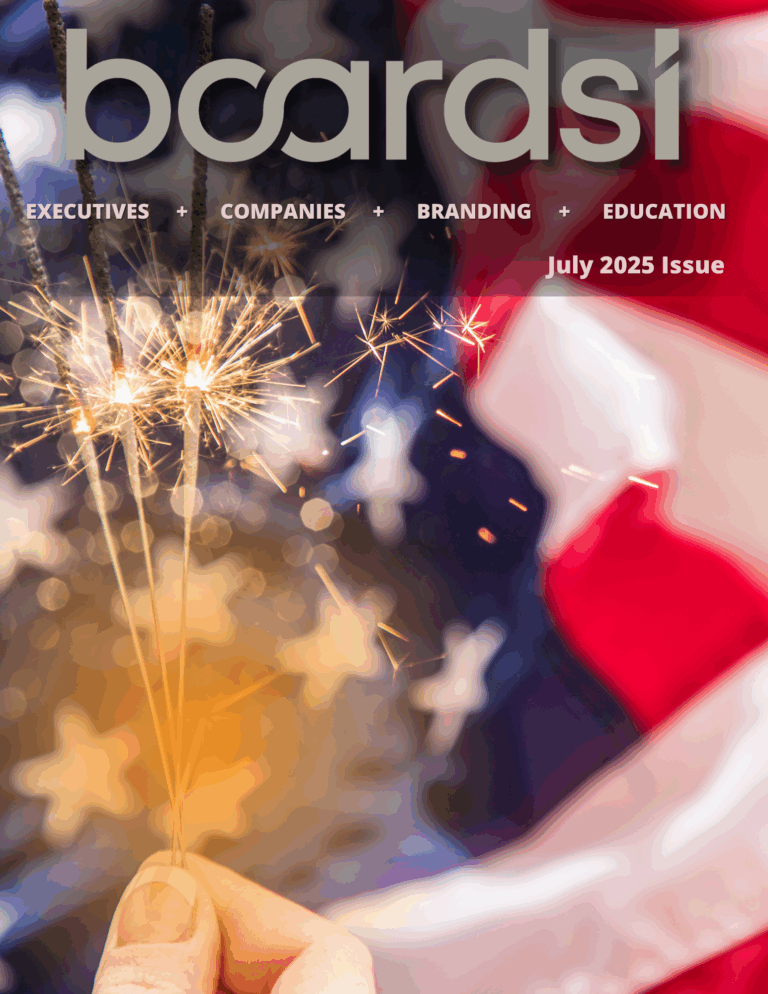When it comes to effective leadership, soft skills are essential in today’s boardrooms, where strong interpersonal abilities shape decisions, foster collaboration, and drive results. Organizations like Boardsi, a premier platform for connecting executives with companies and board positions, emphasize the need for executives who can connect, empathize, and adapt in high-pressure environments. By prioritizing emotional intelligence and communication, leadership teams pave the way for a new era of decision-making where relationships matter as much as strategies.
Understanding Soft Skills in Leadership
Leadership in the modern boardroom demands more than technical expertise as it requires emotional understanding, adaptability, and effective communication. These intangible qualities, often called soft skills, are critical for leading teams and making impactful decisions. Soft skills enhance an individual’s ability to interact harmoniously with others, determining whether a leader can inspire confidence, resolve conflicts, and maintain momentum in challenging times.
Key soft skills in leadership include communication, emotional intelligence, adaptability, and conflict resolution. Strong communication ensures clarity in discussions, while emotional intelligence enables leaders to manage emotions and build trust. Adaptability allows executives to pivot when circumstances change, and conflict resolution skills help prevent disagreements from escalating. Leaders with these abilities bring teams together, enhance collaboration, and build resilience in the face of challenges.
“In boardrooms, decisions carry significant implications for an organization’s future,” says a Boardsi executive. “While technical expertise is crucial, a leader’s ability to connect, inspire confidence, and foster collaboration determines long-term success.”
Emotional intelligence plays a central role in decision-making, helping leaders interpret subtle cues and make choices informed by both data and human insight. Transparency and clear communication ensure alignment among leadership teams, avoiding disruptions caused by misunderstandings.
Engagement with stakeholders also depends on interpersonal skills. Whether addressing investors, partners, or internal teams, the ability to establish rapport and build trust influences the success of negotiations and collaborations. Without soft skills, even the most well-planned strategies can falter.
From smoothing out tensions during high-stress meetings to inspiring teams during uncertainty, these qualities enable leaders to perform beyond the numbers, acting as the glue that holds boardrooms together.
The Role of Emotional Intelligence in Board Leadership
Emotional intelligence (EI) is one of the most impactful yet undervalued leadership capabilities. It enables leaders to navigate interpersonal dynamics, address disagreements constructively, and create a culture where all voices are heard. EI consists of four key components: self-awareness, self-regulation, empathy, and social skills.
Leaders with self-awareness recognize how their emotions affect group dynamics, while those with self-regulation control their reactions and set a composed tone under pressure. Empathy fosters trust and openness by allowing leaders to understand others’ perspectives, and social skills enable productive relationship management.
Notes a Boardsi leader, “Boardrooms require clear communication and emotionally intelligent leaders excel at fostering meaningful dialogue.”
These emotionally intelligent leaders listen actively, pick up on verbal and non-verbal cues, and encourage open discussions where differing opinions are respected. Their ability to simplify complex ideas ensures alignment among stakeholders. Conflict resolution is another critical aspect of EI. Leaders skilled in managing disagreements stay neutral, defuse tensions, and focus on solutions, framing disputes as opportunities to unite around shared goals.
Soft Skills for Strategic Decision-Making
Strategic decision-making in modern boardrooms requires integrating diverse perspectives to build stronger organizations. While technical expertise forms the foundation, soft skills bind leadership teams together, ensuring decisions align with organizational goals. Active listening plays a key role, as it allows leaders to understand varied viewpoints without bias. In discussions about market expansion, for example, leaders who actively listen gain insights into cultural or operational challenges, leading to better-informed strategies.
Collaboration unifies individuals with different expertise, leading to decisions that enjoy broad support. Effective teamwork prioritizes organizational success over personal agendas. Leaders who promote collaboration encourage open dialogue, steer discussions toward solutions, and celebrate shared achievements. Adaptability is another crucial trait, particularly in today’s fast-changing business environment. Leaders who remain flexible under uncertainty can pivot strategies, solve problems creatively, and maintain team confidence. Resilience complements adaptability by ensuring leaders endure setbacks without losing momentum. They inspire teams to view challenges as growth opportunities rather than obstacles.
By blending active listening, collaboration, adaptability, and resilience, leaders ensure their decisions lead to smarter outcomes and cohesive teams. Soft skills elevate boardroom discussions beyond technical expertise, creating environments where innovation and progress thrive.
Soft Skills and Stakeholder Management
In an era of diverse perspectives and competing interests, soft skills are essential for effective stakeholder management. These abilities enable leaders to build trust, balance expectations, and foster relationships that support organizational goals. Trust is the foundation of strong leadership and requires transparency, empathy, and consistency. Transparent leaders remove doubt and build confidence, while empathetic leaders acknowledge stakeholders’ concerns, deepening connections. Consistency reinforces credibility, as stakeholders value leaders who align actions with words.
“Managing stakeholder expectations involves clear communication and negotiation skills. Leaders must translate complex ideas into accessible insights while addressing concerns directly,” says a Boardsi leader.
Negotiation helps balance conflicting priorities, such as investor demands for short-term gains versus marketing teams advocating for long-term brand growth. The ability to navigate these challenges with approachability and solution-oriented thinking transforms potential conflicts into opportunities for collaboration.
Networking is another critical soft skill in stakeholder management. Beyond industry events, strong networks provide invaluable support systems, insights, and opportunities. Leaders who prioritize genuine engagement build relationships based on mutual respect, which translates into greater influence and access to diverse perspectives. Well-connected leaders can tap into expertise across industries, enhancing decision-making and opening doors to new collaborations. In leadership, stakeholder management relies not only on technical knowledge but also on interpersonal effectiveness, making soft skills indispensable.
Developing Soft Skills for Boardroom Success
Developing soft skills enhances leadership effectiveness. Whether through intentional learning, feedback, or industry study, cultivating these abilities equips leaders to navigate complex dynamics and drive meaningful outcomes. Leadership training has become a valuable tool for strengthening soft skills. Workshops, seminars, and executive coaching provide hands-on strategies for improving communication, conflict resolution, and emotional intelligence. These programs foster collaboration and encourage shared learning experiences, while personalized coaching helps leaders refine their approaches to challenges.
Actively seeking feedback demonstrates a commitment to growth. Constructive feedback provides insights into behaviors and blind spots, offering opportunities for improvement. Self-reflection complements this process, encouraging leaders to evaluate their performance and identify areas for development. By incorporating feedback into their leadership approach, executives enhance their self-awareness and authenticity, strengthening their relationships with board members and stakeholders.
The future of leadership will increasingly depend on soft skills, as organizations recognize their role in driving collaboration, innovation, and resilience. As industries evolve, adaptability and emotional intelligence will remain vital for leaders navigating uncertainty. Communication will continue to be a critical factor in aligning teams and stakeholders toward shared objectives. Leaders who refine their soft skills will not only enhance their influence but also create environments where trust, engagement, and strategic decision-making flourish. Prioritizing these abilities will be key to shaping the next generation of effective boardroom leadership.
#Leadership, #SoftSkills, #EmotionalIntelligence, #Boardroom, #ExecutiveLeadership, #BusinessStrategy, #CorporateLeadership, #DecisionMaking, #Collaboration, #StakeholderManagement, #Adaptability, #ConflictResolution, #CommunicationSkills, #StrategicThinking, #ProfessionalDevelopment, #ExecutiveCoaching, #TrustBuilding, #NegotiationSkills, #Resilience, #ActiveListening, #LeadershipDevelopment, #Teamwork, #Networking, #Innovation, #BusinessGrowth, #ManagementSkills, #BoardLeadership, #WorkplaceCulture, #SuccessMindset, #CareerGrowth
Source: Markets Herald









